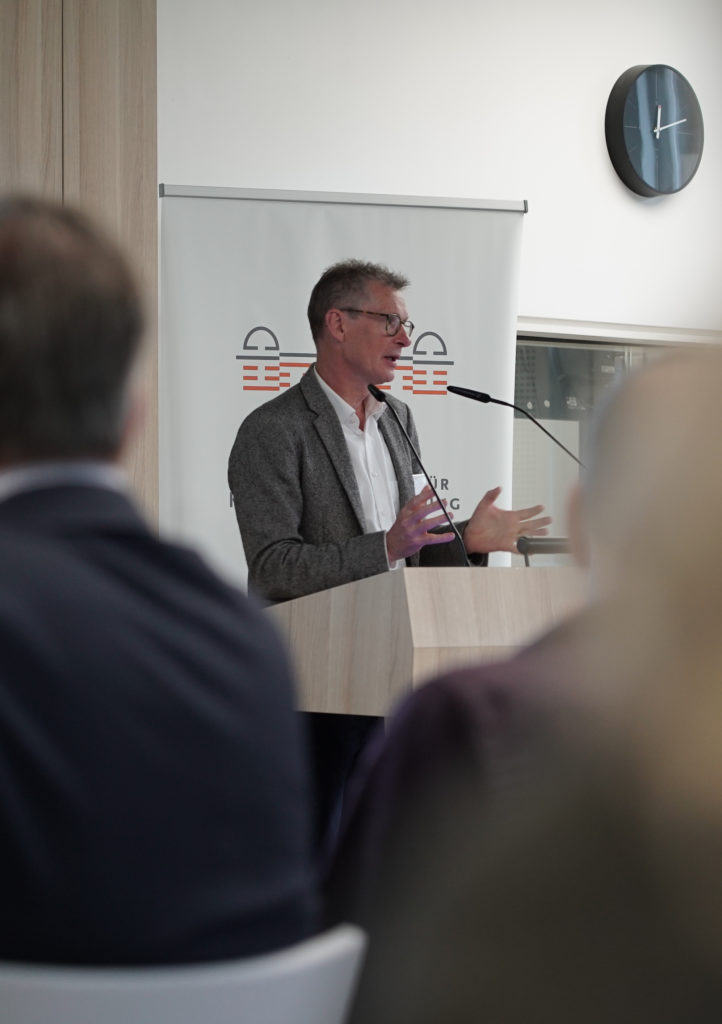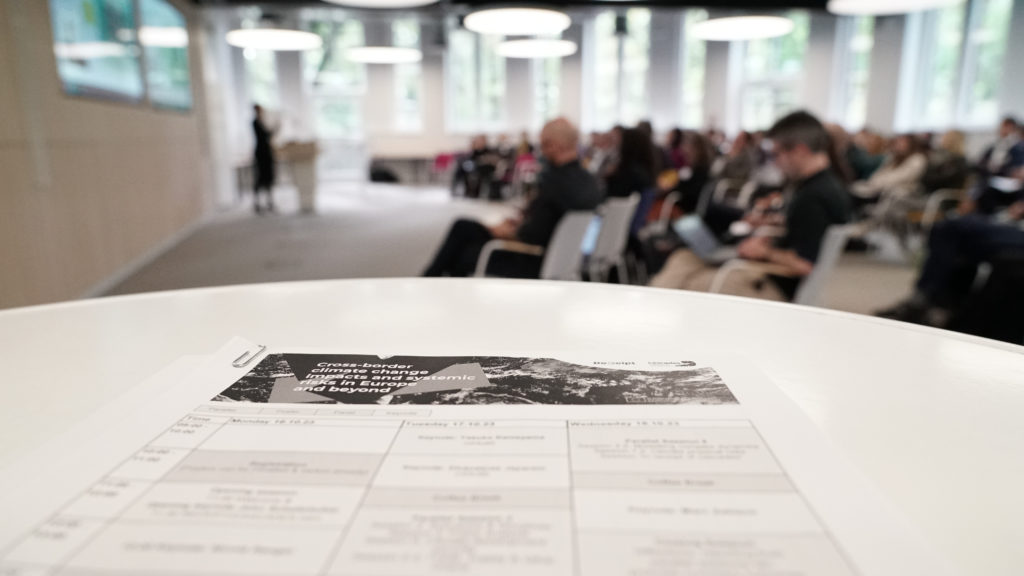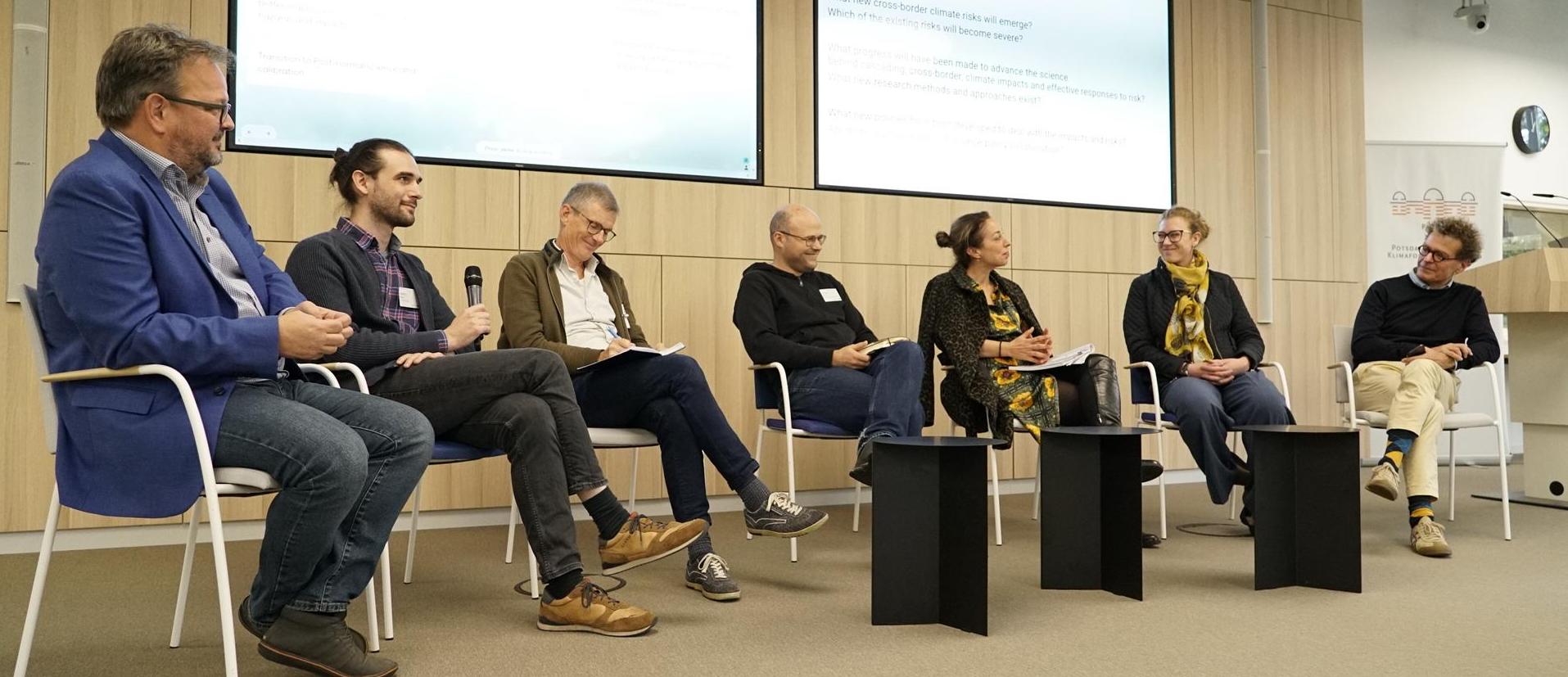Transitioning towards climate-adaptive and resilient societies – that was the overarching aim of the conference “Cross-border climate change impacts and systemic risks in Europe and beyond” at Potsdam-Institute of Climate Impact Research (PIK).
For three days in mid-October, 150 scientists from all over the world came together across disciplines to better understand and respond to the emerging topic of cross-border climate impacts and risks.
The event covered a wide range of topics, reaching from conceptual frameworks of cross-border and cascading climate impacts and risks, to policy analysis methods, climate physical risks and impacts on the financial system. The organisers invited the scientific “cross-border risks” community to share research results and policy recommendations and identify knowledge gaps and directions for future research.
The hybrid conference featured more than 70 oral presentations in parallel sessions, key notes, poster and multimedia experience sessions, high-level panels with participants from UNFCCC, European Commission and ECB, bringing together the state-of-the-art knowledge on cascading and systemic risks.
“The past years have shown us that a deeper understanding of the complexities of how impacts of climate and other crises such the COVID-19 Pandemic or the war on Ukraine interact and propagate through our globally connected financial and trade system is needed. The conference has shown that we have the capacities and the knowledge to embrace this complexity and support the development of coherent policies,” says PIK-scientist and head of the organising team Christopher Reyer.


Photography: RECEIPT – Arctik Communication for Sustainability.
“Great to have been working at the forefront of the research that is needed to cope with real-life complex high-risk events”, adds IPCC co-chair Bart van den Hurk from VU University Amsterdam, coordinator of RECEIPT.
Among the key note speakers were Hans Joachim Schellnhuber, director emeritus of PIK and leader of the Bauhaus Earth initiative, Nicola Ranger, from the Environmental Change Institute at the University of Oxford, Yasuko Kameyama from Tokyo University and Gabriel Felbermayr, Director of the Austrian Institute of Economic Research (WIFO). The joint conference marked the final event of the EU sister projects CASCADES and RECEIPT.
Published on : 03 November 2023
